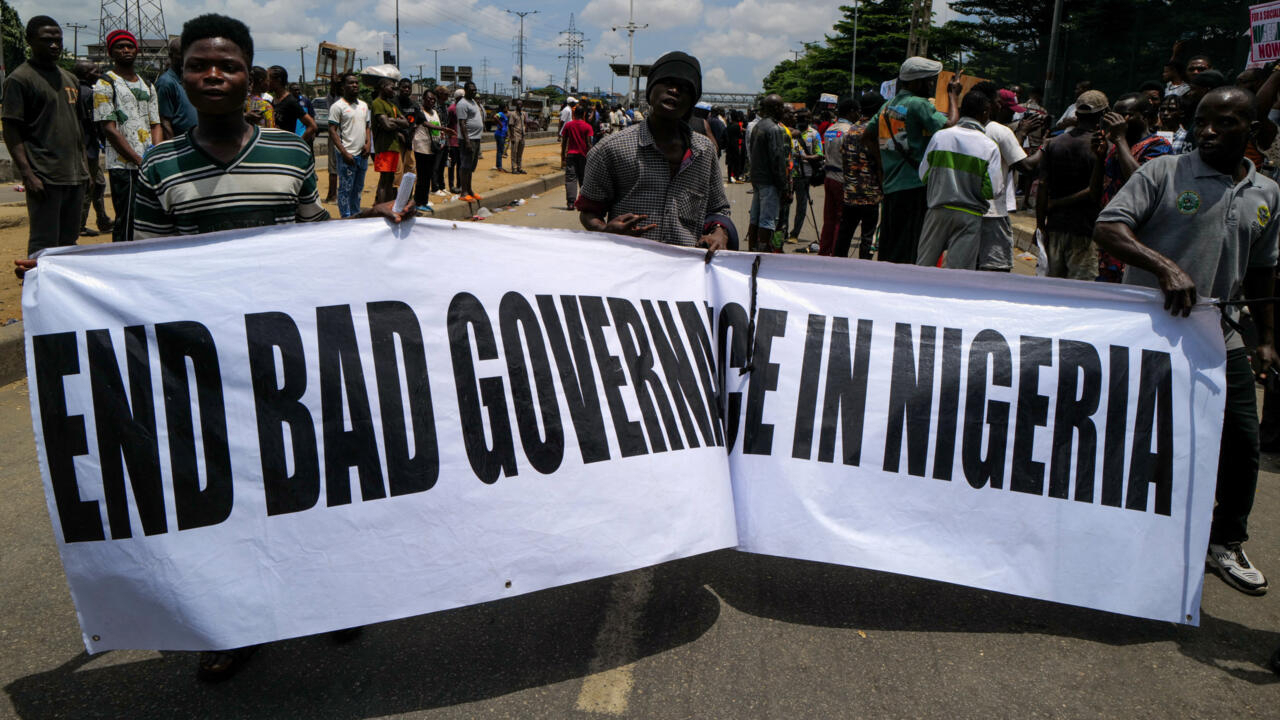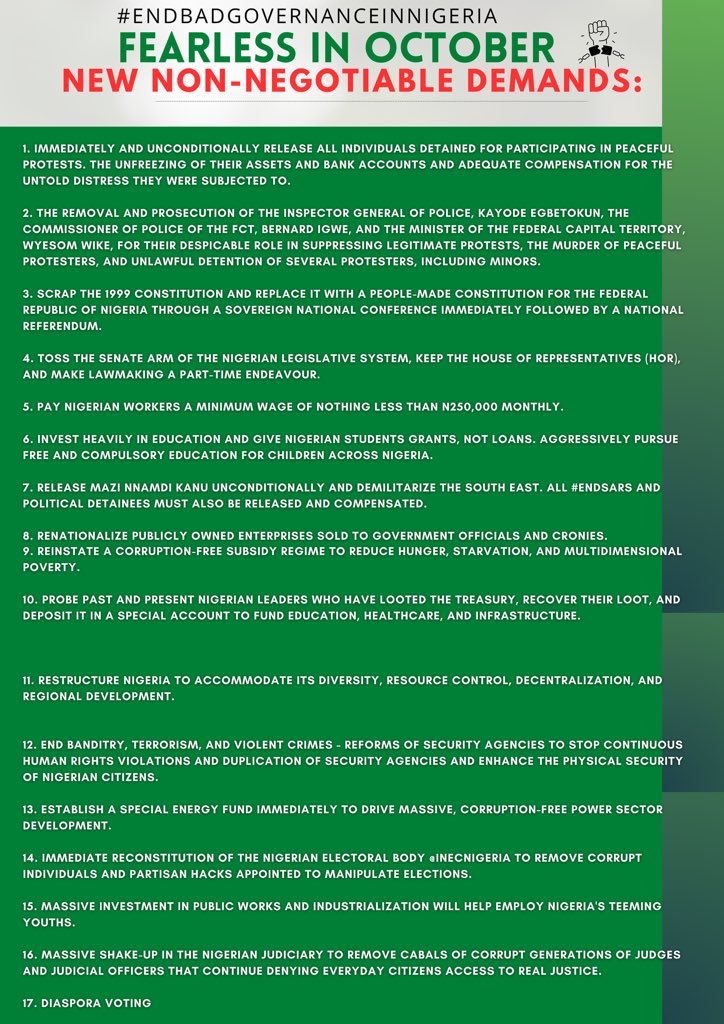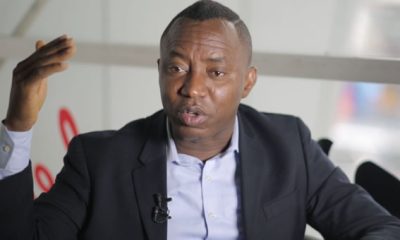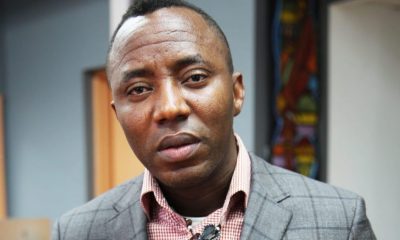National
Organizers Unveil 17 Non-Negotiable Demands Ahead Of October 1 #EndBadGovernance Protest

Ahead of the much-anticipated second phase of the #EndBadGovernance protest scheduled for October 1st, prominent activist Omoyele Sowore has laid out 17 non-negotiable demands directed at the Nigerian government.
The demands are part of a renewed effort to tackle the country’s deepening economic crisis, worsening governance issues, and widespread public discontent.
Sowore, who has been at the forefront of the movement, emphasized that the demands were formulated based on extensive input from Nigerians actively engaged in the campaign. The list addresses a broad spectrum of concerns, reflecting the growing frustrations of citizens from all walks of life.
Among the key demands is the immediate and unconditional release of all individuals detained during the initial #EndBadGovernance protests, which took place from August 1st to 10th. The protesters are also calling for the unfreezing of assets belonging to those who participated in the demonstrations, as well as appropriate compensation for the hardships they endured during the peaceful protests.
Sowore also called for the removal and prosecution of several high-ranking officials, including the Inspector General of Police, Kayode Egbetokun, FCT Commissioner of Police, Bernard Igwe, and the Minister of the Federal Capital Territory, Nyesom Wike. The activists accused the officials of playing central roles in the violent suppression of legitimate protests, resulting in the deaths of peaceful protesters and the unlawful detention of many, including minors.
The demands also push for major structural changes, such as the immediate scrapping of the 1999 Constitution, to be replaced by a new, people-driven Constitution through a Sovereign National Conference followed by a National Referendum. Additionally, they propose abolishing the Senate, making the House of Representatives a part-time legislature, and instituting a new minimum wage of at least N250,000 monthly for Nigerian workers.
Education reform is another critical focus, with demands for significant investments in the sector, the provision of grants instead of loans to students, and the enforcement of free and compulsory education for all children across the country.
Further demands include the unconditional release of Mazi Nnamdi Kanu and other political detainees, the renationalization of publicly owned enterprises previously sold to government cronies, and the reinstatement of a corruption-free subsidy regime to alleviate hunger and poverty.
The activists also call for the prosecution of corrupt past and present Nigerian leaders, with the recovered funds directed towards education, healthcare, and infrastructure development. They demand the restructuring of Nigeria to ensure better representation of its diverse population, the end of banditry and terrorism, and comprehensive reforms in the security sector.
Other notable demands include the creation of a Special Energy Fund to drive power sector development, reconstitution of the Nigerian Electoral Body (INEC) to eliminate corruption, a massive public works and industrialization program to create jobs for the youth, and a major overhaul of the judiciary to remove corrupt judges and ensure access to justice for all Nigerians.

The protesters are also advocating for diaspora voting rights, emphasizing the need for a more inclusive and democratic electoral process.
As the October 1st protests draw closer, these demands set the stage for a potential turning point in Nigeria’s governance. The government’s response to these far-reaching demands will be closely watched, as citizens hope for meaningful changes to address the country’s pressing challenges.
Send Us A Press Statement Advertise With Us Contact Us
And For More Nigerian News Visit GWG.NG













